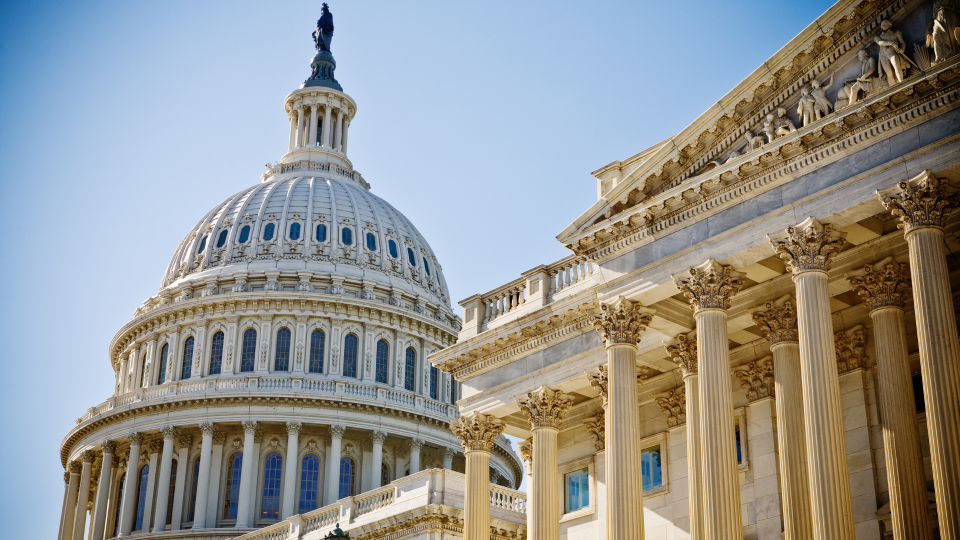The Industrial Innovation Initiative (I3) released the following statement today regarding the passage of the Inflation Reduction Act of 2022. This statement may be attributed to Gabrielle Habeeb, Project Manager for the Industrial Innovation Initiative:
“Today’s passage of the Inflation Reduction Act of 2022 by Congress marks a monumental investment in the solutions necessary to achieve U.S. climate goals. This package will set the stage for private investment, protect energy communities, support family-sustaining jobs, and spur emissions reductions from the vital, yet challenging, industrial sector. The industrial sector is essential to jobs and prosperity, producing the materials necessary for our everyday lives, from transportation infrastructure to the buildings in which we live and work. Policies and incentives within the Inflation Reduction Act of 2022 will help mitigate both industry’s climate-warming emissions and the pollutants that adversely impact communities.
Key provisions for industrial decarbonization include:
The Clean Hydrogen Production Tax Credit: To incentivize clean hydrogen production, this credit is scaled such that the lower the carbon intensity of the hydrogen produced, the greater the credit value. Clean hydrogen produced with a carbon intensity of less than 0.45kg CO2e/ 1kg H2 are eligible for the full credit value, while hydrogen produced with a carbon intensity greater than 4kg CO2e/1kg H2 is not eligible for the credit. Hydrogen produced with a carbon intensity within that range are scaled according to the applicable percentage. The valuation is technology and production method agnostic, awarding credit based on greenhouse gas lifecycle assessments. This “all of the above” approach will help spur clean hydrogen production and provide a critical boost to this nascent economy. Critical enhancements to the 45Q Carbon Oxide Sequestration Tax Credit: The 45Q tax credit is a key financial driver for carbon management solutions. Enhancements to this credit include (but are not limited to) enhanced credit values for storage and utilization of industrial CO2; direct payments to domestic manufacturing projects for the first 5 years after carbon capture equipment is placed in service; and significantly lower capture thresholds, allowing for greater participation across facilities. For more information on the carbon management provisions of this bill, see the Carbon Capture Coalition’s fact sheet.
Expanded eligibility for the 48C Advanced Manufacturing Tax Credit: The bill provides $10 billion in additional 48C credit allocations, including an extension of the Advanced Energy Project Credit to include industrial applications beyond clean energy system production. The new definition includes applications that retrofit industrial or manufacturing facilities with low- or zero-carbon process heat systems; carbon capture, utilization, and storage; energy efficiency and waste reduction; energy storage systems; and any other technology designed to reduce greenhouse gas emissions.
The Advanced Industrial Facilities Deployment Program: $5.812 billion is allocated to the Office of Clean Energy Demonstrations, covering financial assistance for projects to purchase, install, or implement advanced technology designed to accelerate greenhouse gas emissions reductions at an eligible facility; retrofit, upgrade, or make operational improvements; and conduct engineering studies and other work needed to prepare for such advancements to net-zero emissions. This financing (with a 50% cost share) will help lower the financial hurdle to decarbonizing industrial processes.
These are just a few of the exciting programs within the final budget reconciliation text. The industrial sector is critical to the U.S. economy and workforce. These provisions will help ensure this sector remains competitive while investing in a safe and livable climate. The work to see these provisions implemented to their greatest potential begins now.”
For more information, see the Industrial Innovation Initiative’s fact sheet detailing the industrial provisions of the Inflation Reduction Act of 2022.
###
The Industrial Innovation Initiative (I3) is an ambitious coalition that aims to drive emissions reductions through policy change, supporting quality jobs and investment in key US industrial sectors. I3 builds on years of stakeholder engagement and work with state officials in the Midcontinent region, as well as extensive work advancing decarbonization solutions important to the industrial sector.

